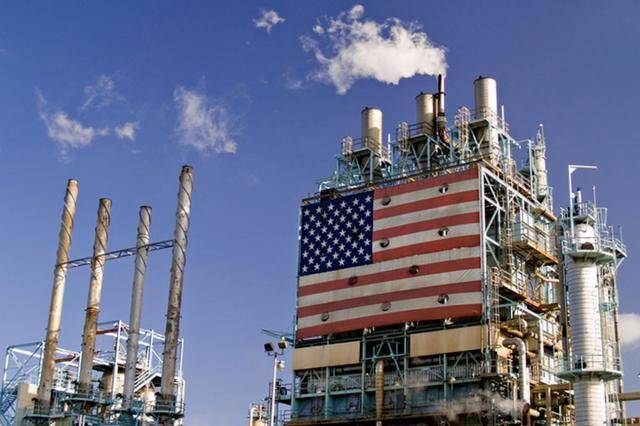
In June 2025, the United States' military operation against Iran's nuclear facilities triggered sharp fluctuations in the international crude oil market. Brent crude oil has risen by nearly 18% since the announcement of the news, approaching $80 per barrel. Energy prices are one of the core variables in the operation of the global economy. The rapid rise in oil prices has extensive and profound impacts on the global production, consumption and trade patterns. The changes in crude oil prices not only affect the cost structure of enterprises and consumers, but also directly interfere with the policy-making and market expectations of various countries, constituting an important risk point in the global macroeconomy.
First of all, the increase in energy prices has a significant cost transmission effect on the production side. The transportation, aviation, manufacturing, agriculture, construction and other industries are all highly dependent on energy resources. The rise in oil prices will increase the costs of raw materials and logistics, and compress the profit margins of enterprises. In particular, the disadvantages of small and medium-sized enterprises in cost control and the ability to pass on prices will become more prominent. This cost-push inflation may intensify price fluctuations, affect the operational stability of enterprises, and may force some enterprises to reduce investment, lay off staff or cut non-core businesses, thereby exerting a negative feedback on the labor market.
Secondly, the rise in oil prices further boosts the pressure of imported inflation, weakening the policy space of global central banks. Major monetary authorities such as the Federal Reserve, the European Central Bank, and the Bank of Japan were originally expected to gradually withdraw from their tightening policies by 2025, and some central banks have already initiated interest rate cuts. However, high oil prices may trigger a rebound in inflation, delaying or weakening the easing cycle. Policy makers need to re-weigh the relationship between growth and inflation. For emerging economies that originally had a relatively high inflation level, high oil prices combined with the depreciation of their currencies will make it even more difficult for them to control domestic prices and stabilize the financial market.
The capital market has also been significantly affected. The rising risk aversion sentiment pushed up the exchange rate of the US dollar, and funds flowed into US Treasury bonds and energy-related assets, while high-risk assets adjusted. In the cryptocurrency market, assets such as Bitcoin have experienced severe fluctuations due to the shift in market sentiment and the liquidation of leveraged trading, with a total of over 1 billion US dollars of assets being forcibly liquidated. Global stock markets as a whole were under pressure, especially the consumer goods, technology and manufacturing sectors performed weakly, while the energy sector benefited from the rise in oil prices and rose briefly. The changes in the market structure also indicate that capital is being reallocated and making new predictions about the macroeconomic outlook.
The global trade pattern is also facing the risk of adjustment. High energy prices have raised the cost of long-distance transportation and disrupted the cost structure of the existing supply chain. Some enterprises may turn to local production or regional supply chains to avoid uncertainties. This will further impact low-cost export-oriented economies. In particular, Southeast Asia, Central and Eastern Europe, and Latin America may face challenges such as compressed export profits, order shifts, and capacity fluctuations. The coordinated increase in global commodity prices has also intensified the inflation transmission chain and strengthened the continuation of the trend of global economic fragmentation and de-globalization.
In the medium and long term, this round of oil price shock has also exposed the structural dependence of the global economy on fossil energy. Although many countries are promoting energy transition policies, driving the development of clean energy and achieving carbon neutrality goals, in the reality that renewable energy has not yet fully replaced traditional energy, the fluctuations in energy prices brought about by unexpected events still have a high degree of transmission effect. The external shock to oil prices has exposed the macroeconomy to the dual risks of high inflation and low growth in the short term. Especially when the global economy is slowing down simultaneously and the space for policy stimulus is limited, such risks may have a sustained suppressing effect on growth expectations in 2025.
Overall, the soaring oil prices are not merely a temporary reaction in the energy market, but rather an amplification of the fragility of the current global economic structure. It reflects that the world still lacks effective buffer mechanisms when dealing with geopolitical conflicts and sudden supply shocks. If geopolitical tensions persist in the future, the possibility of further oil price increases still exists. What follows will be a readjustment of the global macroeconomic operation rhythm, including changes in the rhythm of monetary policy, shifts in the direction of cross-border capital flows, and a re-evaluation of corporate strategic deployments. Against this backdrop, economic entities need to enhance their sensitivity to fluctuations in the energy market, and make early plans for price risk management and cost control strategies to deal with possible economic uncertainty cycles.

According to EngadTech media reports, the Windows security update recently released by Microsoft has triggered a series of technical issues.
According to EngadTech media reports, the Windows security …
On January 19, 2026, the International Monetary Fund (IMF) …
When Musk brandished a $134 billion lawsuit against OpenAI …
At the beginning of 2026, the global gold market witnessed …
On January 18, EU ambassadors reached a broad agreement to …
In January 2026, Elon Musk took OpenAI and Microsoft to cou…